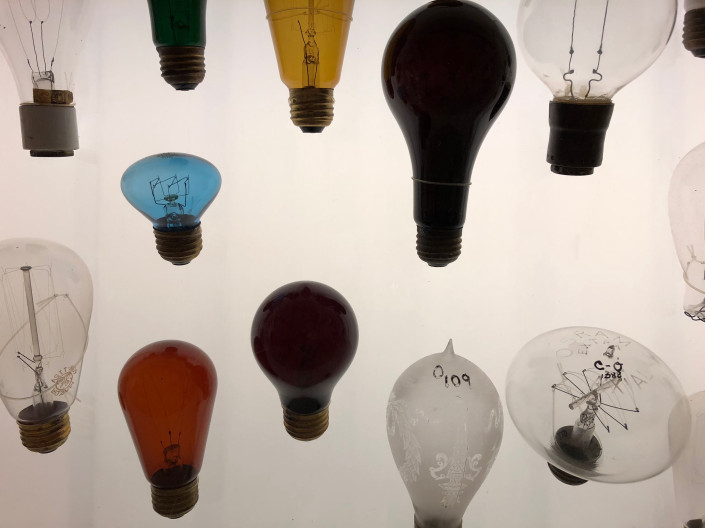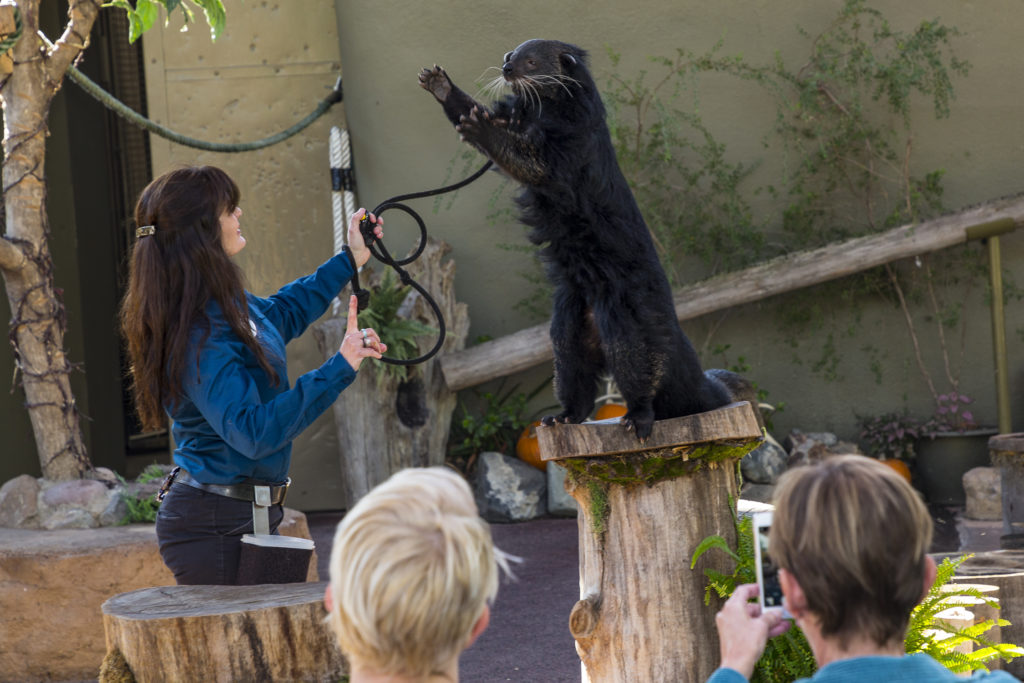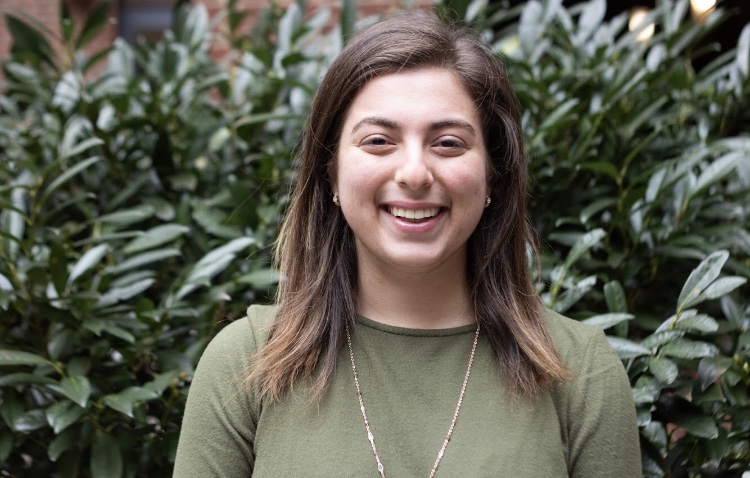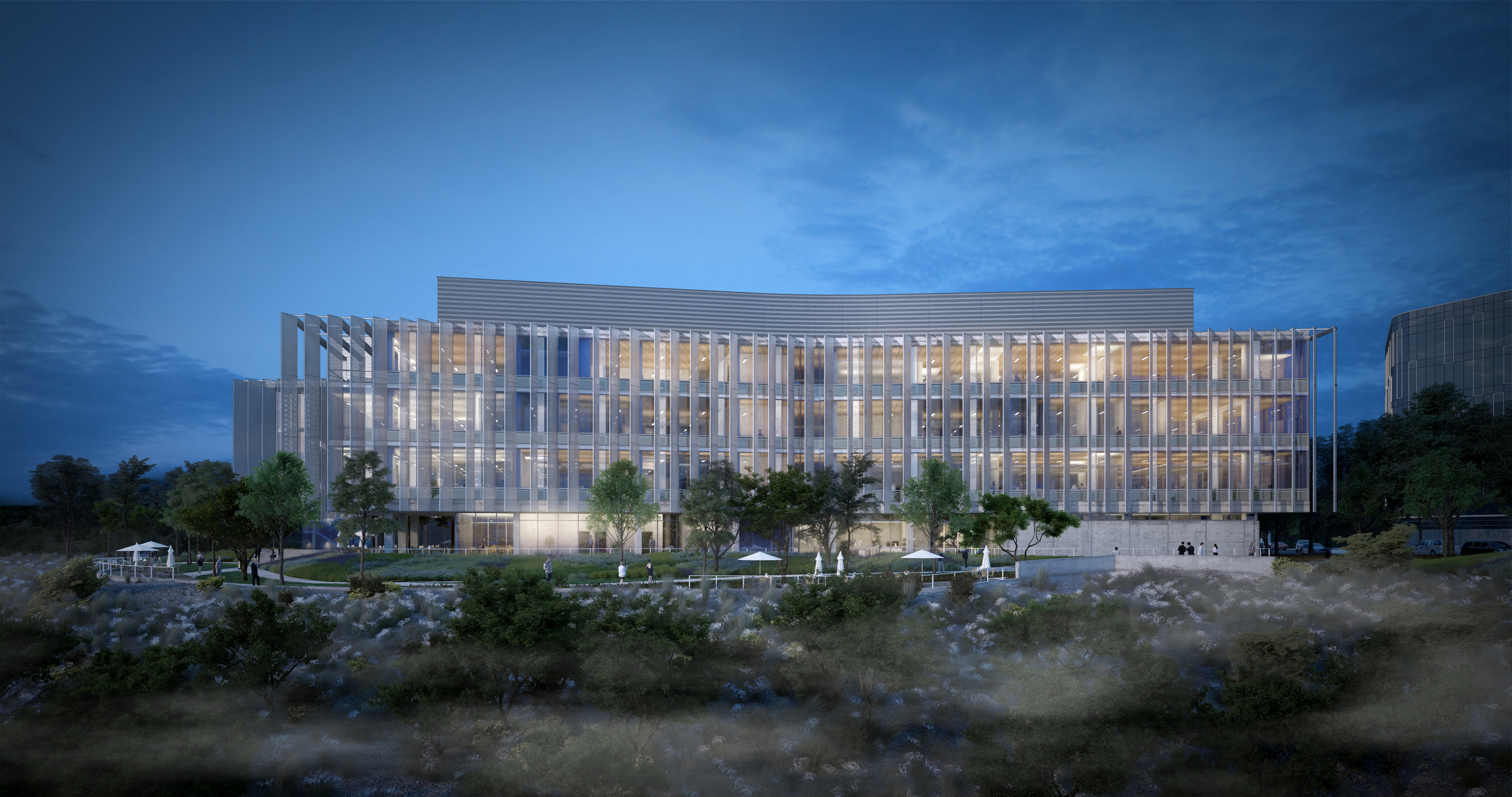Daily Business Report-Nov. 7, 2019
Rendering of Franklin Antonio Hall, courtesy of UC San Diego. (Photo: Business Wire)
Cubic to become first corporate
partner to be recognized within
UCSD’s Franklin Antonio Hall
Cubic Corporation announced its philanthropic support of UC San Diego’s Jacobs School of Engineering, and will be the first corporate partner to be recognized within the university’s new engineering building project — Franklin Antonio Hall.
“With recognition in Franklin Antonio Hall, Cubic is helping us to create an exciting new ecosystem built around an optimistic, human-centered vision for the digital future,” said Albert P. Pisano, dean of the UC San Diego Jacobs School of Engineering.
Franklin Antonio Hall, named in honor of UC San Diego alumnus Franklin Antonio, is a 186,000-square-foot university building being designed from the ground up for open, collaborative research and active learning.
Within the building, large and open collaborative research spaces, called “collaboratories,” will house multiple professors and their students. This design will encourage the diverse and interdisciplinary systems-level collaborations necessary to solve the toughest challenges facing humanity, said university officials.
Cubic has been a long-time member of UC San Diego Jacobs School of Engineering’s Corporate Affiliates Program, which provides access and visibility to the technology and talent at the university. Cubic has participated in the Jacobs School of Engineering Team Internship Program (TIP), where students are able to partner with corporations on projects related to their businesses and technologies.
Through the TIP, interdisciplinary teams of engineering students worked on various technologies to support Cubic’s transportation business such as projects related to a bus data tracker, a green transportation app, an Android smartcard checker and an automation testbed for contactless cards, among others.
The public groundbreaking of the Franklin Antonio Hall is scheduled for Nov. 15.
________________________

Let light shine, but not incandescent
Dan Morain |CalMatters
California Attorney General Xavier Becerra sued the Trump administration for the 62nd time, this one over the administration’s attempt to roll back an Obama administration regulation to increase the efficiency of light bulbs.
In a mass email to his supporters that coincided with the suit, Becerra called Trump’s effort a “dim-witted move.” California already regulates light bulbs, as it strives to reduce electricity usage.
California, New York and 13 other states argue that the new rule violates federal energy law, CalMatters detailed in its Becerra vs. Trump lawsuit tracker.
In September, Trump’s Energy Department prolonged the lives of incandescent light bulbs by reversing energy-efficiency standards put in place on President Obama’s last day in office, as The Washington Post detailed.
________________________
New MiraCosta College Veterans Center
receives $1.5 million in state funding
MiraCosta College has secured $1.5 million in state funding to help equip and furnish a new Veterans Center being planned for the Oceanside campus.
The 1,424-square-foot Veterans Center will be housed in a new Student Services Building at MiraCosta College’s Pedley Park near the Administration Building. The $1.5 million in funding will help equip an 800-square-foot lounge and resource area, in addition to offices for the veterans services program manager, a Veterans Administration representative and a trio of counselors, as well as a veterans patio. Computer stations and printers, a bolstered textbook loan program, and expanded outreach and communications to Camp Pendleton – the West Coast’s largest Marine Corps base and home to the 1st Marine Expeditionary Force – are among the planned enhancements.
The Veterans Center is now in the design phase; construction is expected to begin in approximately 12 months.
The new Student Services Building, including the expanded Veterans Center, is being financed through a voter-approved $455-million bond program aimed at modernizing the San Elijo and Oceanside campuses and the MiraCosta College Community Learning Center.
________________________
Trolley and bus ridership climb by
almost 1 million in first 3 months of fiscal year
Ridership on the Metropolitan Transit System (MTS) Trolley and bus network has climbed by nearly 1 million extra passenger trips in the first three months of fiscal year 2020, which began on July 1, 2019, the MTS reported. The spike has been led by the Trolley, which has posted six straight months of year-over-year gains, including a 9 percent jump in September. On the rail side, ridership increased by 621,063 passenger trips in the first quarter. Notable is that Trolley ridership was 9.1 percent higher in in September 2019 compared to the same month in 2018. This is the Trolley’s largest ridership increase month-over-month since October 2014.
On the bus side, ridership increased by 323,481 passenger trips in the first quarter. Notable to this increase is that MTS buses had a 5 percebt ridership spike in July, the largest year-over-year increase since October 2014.
In the past six months (April – September) bus and Trolley ridership combined has grown by 1.2 million compared to the same months in 2018. Going back even further, Trolley ridership has improved in 11 of the past 13 months compared to the same months last year.
________________________
Human Longevity closes $30 million
financing from health care investors
San Diego-based Human Longevity Inc., which provides precision health intelligence platform for physicians and patients, announced a $30 million financing from veteran biotech investment firms and investors. Existing investor Emerging Technology Partners LLC participated in the financing with other new health care investors. HLI will use the proceeds from this financing to enhance its Health Nucleus intelligence platform, which is using integrated metrics derived from specialized imaging, whole genome sequencing and other lab tests with machine learning and AI to create a comprehensive standard for measuring human health and performance.
________________________
Cubic and Comtech partner for
next generation Troposcatter contract
Cubic Corporation’s Cubic Mission Solutions business division was awarded a 10-year, $325 million contract by the U.S. Marine Corps to provide 172 Next Generation Troposcatter (NGT) systems. Cubic will partner with subcontractor Comtech Telecommunications Corp. subsidiary Comtech Systems Inc. to manufacture and deliver the NGT systems as well as provide test support, logistics and training documentation, training execution, fielding support and sustainment.
Tropospheric scatter technology has been fielded for decades. It works by pointing two troposcatter systems at each other that can be separated by distances of more than 200 miles. Highly focused radio waves are pointed at the horizon. As the radio waves pass through the atmosphere (specifically the troposphere) some of these waves are reflected off particles and captured by the receiving antenna.
________________________

Cox Charities awards $100,000 in grants
to nonprofit organizations in San Diego County
Cox Charities will award a total of $100,000 in grants to 10 San Diego nonprofit organizations to support initiatives that focus on youth, education, conservation, and the military. A philanthropic arm of Cox Communications that is funded by employee donations with a company match, Cox Charities is celebrating 20 years of giving in California in 2019.
A volunteer board of employees from Cox Communications, Cox Business, and Cox Media oversee Cox Charities and its giving programs, which include nonprofit grants, awarding scholarships to high school seniors, and supporting programs and organizations focused on Cox Charities’ giving pillars.
The 2019 nonprofit grant recipients in San Diego are:
- Armed Services YMCA San Diego: Operation Holiday.
- Biocom Institute: Biocom Institute’s Veterans Initiative (92121).
- Boys to Men Mentoring Network: In-School Mentoring Program.
- Feeding San Diego: Feeding Heroes Program.
- Girls Rising: Mentor Program.
- Kid Spark Education: The Michael W. Neden Emerging Engineers Project.
- Paralyzed Veterans of America Cal-Diego Chapter: DePeralta Inpatient Program (La Jolla).
- San Diego Children’s Discovery Museum: Educational STEM Workshops and Exhibits for Low-Income Children.
- WILDCOAST: Explore My Marine Protected Areas Project.
- San Diego Zoo Global: Exploring Conservation Science Program for Underserved San Diego County High Schools.
________________________
Anti-Submarine Warfare Training

________________________

Commentary:
California Democrats’ ‘big tent’
is not yet fully open to young people
By Naava Ellenberg, Special to CalMatters
Democrats take young people and our votes for granted. That has to stop.
The California Democratic Party has announced a new program titled the California Young Democrats Ambassador Program. With this program, two or three ambassadors will be non-voting members of every standing committee in the state’s party. Isn’t that great?
Young people will have front row seats to all of the action. We will get to be in the room where decisions are being made. Too bad we will have no say in those decisions. If these ambassadors are going to be participating in meetings, helping draft proposals, and voicing opinions throughout sessions, why will they not be given a vote?
Why are young people only valued to the extent that we can still be overlooked if the older people in the room disagree? Why is the California Democratic Party willing to hear our voices and hone our skills, yet unwilling to count our votes?
I am still in school in New York, so I am not applying for this program. But I don’t know if I would be interested if I was in California, despite being an engaged Democrat registered to vote in San Jose. Still, I can relate to young people who will surely apply, even as they are undervalued.
Say what you will about young people, but we are becoming a force in politics.
March for our Lives and the Climate Strike were organized by young people. Millennials are running for office and winning seats. We are not a constituency willing to be overlooked.
It is true that young people tend to be progressive and are therefore more likely to vote for the Democrat. However, it seems to me that more and more of my peers are disenchanted by party politics. The candidate we support may have a D next to their name, but when asked about the party itself, we are frustrated by its policies and practices.
In order for the Democratic Party to be strong and organized enough to beat President Donald Trump, hold the House, and flip the Senate, it has to welcome young people into all of its processes. That does not mean treating us as tokens.
Allowing for young people to do the work and sit at the table, but not giving us a vote is insulting. What qualifies us to participate while simultaneously disqualifies us from voting?
This program reminds me of another favorite of Democratic politics: the unpaid internship.
While some elected officials are moving away from this practice, others keep the program, insisting that interns are being paid in experience. Just like this new ambassador program, unpaid internships demonstrate the lack of value placed on the work and input of young people.
Experience and “resume-building” does not pay bills and placement on committees does not fully include us in the party.
If Rusty Hicks and the California Democratic Party actually value young people and want to build a strong pipeline of enthusiastic members of the party, they would implement this ambassador program with one major change: the ambassadors will be voting members.
What are they afraid will happen? That we will be too liberal? Our ideas too radical? Will we push the party in the direction we want it to move? If you want us to work and participate, let us vote.
Within the next decade, we will be the ones ready to take charge. We will either want to lead a party in which we have felt welcomed and included, or we will fight this system from the outside. Either way, we will be ready to change our politics for the better.
I think you will want us on your side. Demonstrate that you are with us and not against us, and we will do the same. If you want us on your committees, let us vote.
Naava Ellenberg is a senior at Barnard College and a Democrat from San Jose, naava.ellenberg@gmail.com. She wrote this commentary for CalMatters, a public interest journalism venture committed to explaining how California’s Capitol works and why it matters.


